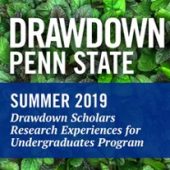
Abstract: Podcasts are increasing in popularity as an educational tool in recent years, but there remains a lack of podcasts that focus on climate change. The goal of this project was to create a series of audio files that address global warming solutions in the state of Pennsylvania, with each episode based upon a drawdown solution. Project Drawdown is a nonprofit organization that models how to reach “drawdown”— the future point in time when levels of greenhouse gases in the atmosphere stop climbing and start to steadily decline. This audio collection contains new and original podcasts addressing each Project Drawdown sector of global warming solutions, such as materials and waste, electricity generation, and land use. To highlight efforts in Pennsylvania, thirteen interviews were conducted with scientists, journalists, and professionals from organizations across the state, such as Feeding Pennsylvania, Southeastern Pennsylvania Transportation Authority (SEPTA), Philadelphia Green Roofs, StateImpact Pennsylvania, and Land Air Water Legal Solutions. Named Drawing Down in Pennsylvania, the podcast collection starts with an introductory episode, then eight episodes each corresponding with one of the Project Drawdown sectors, and wraps up with two additional episodes – one titled “Hope” with messages of optimism towards achieving warming solutions from the interviewees, and a special episode that focuses on The Pennsylvania State University and its efforts toward to drawdown. The audio collection is published online, together with corresponding transcripts and supplemental materials. It is hoped that these podcasts will help inform Pennsylvania residents to make choices and to take action for a sustainable future. For residents outside of Pennsylvania, these drawdown efforts can be applied to different populations and regions. The entire podcast series can be accessed at: https://sites.psu.edu/drawingdownpa/ and is suitable for middle school through college classrooms as well as general audiences.
Continue Reading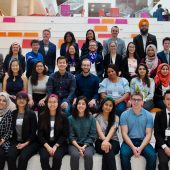
The Calgary Interprofessional Challenge (CIC) engages university students across disciplines in a novel 44-hour hackathon based on faculty and peer-to-peer interprofessional education. CIC uses short introductory talks on problem-solving in different faculties, a series of workshops, and expert mentorship from university faculty, relevant specialists, and entrepreneurs as its core curriculum. A recent offering of CIC used the campus as a learning lab by focusing on a sustainability challenge at our university. The CIC model can be replicated at other campuses to advance sustainability, while cultivating interprofessional and sustainability practice competencies such as stakeholder engagement, group collaboration, and understanding of different worldviews and relationships.
Continue Reading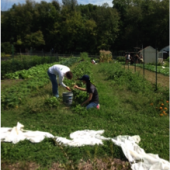
Abstract: Campus agriculture projects are increasingly being recognized as spaces impactful to student engagement and learning through curricular and co-curricular programming; however, most campus farm activities are limited to agriculture or sustainability programs and/or co-curricular student clubs. Thus, campus farms are largely underutilized in the undergraduate curriculum, marking a need to explore the efficacy and impact of engaging a diverse array of disciplinary courses in the rich social, environmental, and civic context of local sustainable agriculture. The Farm Hub program presented here incentivizes instructors to refocus a portion of existing course content around the topic of local, sustainable agriculture, and reduces barriers to using a campus farm as a situated learning context for curricula. A pedagogical framework founded in place-based experiential learning (PBEL) theory was developed to guide instructors in the development and implementation of 4–6-week inquiry-based PBEL modules embedded in existing courses. The framework was converted into a research protocol to quantify program implementation fidelity and PBEL best practice adherence for the proposed lesson plans (intended) and their implementation (applied). The framework enables the development of a cohesive cross-curricular program so that the impact of implementation fidelity and best practice adherence to student learning outcomes in scientific literacy, place attachment and meaning, and civic mindedness can be assessed and the results utilized to develop a formal farm-situated PBEL pedagogical taxonomy. This framework can be applied to PBEL curriculum in natural spaces beyond campus farms.
Continue Reading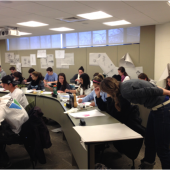
Engaging students not majoring in science, sustainability or environmental studies in learning environmental literacy and shifting their attitudes and behavior toward nature often requires a multi-perspective approach and presents unique challenges. We sought to: (1) pair artistic perspectives with botanical concepts to educate and interest our students in learning environmental literacy, (2) engage our students in careful observation and visualization of nature, and (3) increase the environmental sensitivity of our students by connecting botany with nature based art. To do this we designed a pre-class assignment, an in-class botanical art workshop, and a written reflection assignment that asked students to view, conceptualize, and create works of botanical art as a multi-perspectival process of engaging with relevant scientific processes and environmental concerns connected to botany. Here we provide a justification for the value of bridging science with art, detail our approach, describe student survey responses and thoughtful written reflections, and illustrate lessons learned and future plans.
Continue Reading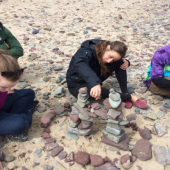
Environmental Study of Sustainable Places is a pedagogical experiment in multi-disciplinary curriculum development on several levels: 1) we integrated our multidisciplinary backgrounds in the social sciences and the humanities—political science and international relations with art and aesthetic education—to develop and co-teach these half courses; 2) student learning outcomes, course requirements, interactions and collaborations, multimedia texts (that can range from journal essays to Ted talks to articles from international press to images of environmental artists), and out of class projects, promote interdisciplinary learning; 3) the semester course confronts borders and boundaries of static college curriculum around sustainability as we examine global and local understanding of sustainability, which is a pre-requisite for a residency at the University of Wales Trinity Saint David where students crossed international borders and boundaries to conduct research of sustainable policy and enculturation in Wales, United Kingdom. Students attended interdisciplinary symposiums and work collaboratively with students representing different disciplines from the University of Wales; and 4) we delicately navigated the College’s curricula policy and bureaucracy to gain approval for a paradigm shift to use the concept of sustainability as a “pedagogical big idea” to assure that students would fulfill either of the Liberal Studies Curriculum requirements: Global Issues for Common Good or Artistic Experience.
Continue Reading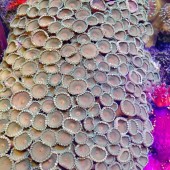
Undergraduate energy education is often offered from a specific perspective, such as engineering, sustainability, policy, or economics. This essay argues that undergraduate programs in energy should be explicitly interdisciplinary, because issues surrounding energy production, transmission, and use have multiple perspectives. Challenges to creating interdisciplinary energy programs include often-compartmentalized nature of colleges and universities, and employment prospects for broadly-educated graduates that may not be clear. Strategies for overcoming those issues are proposed, but others remain to be developed by leaders in undergraduate energy education.
Continue Reading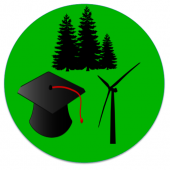
Linking ecology and energy literacy efforts is an essential step for producing scientifically literate citizens who are able to make informed choices about energy, yet the two literacies have developed independently. To explicitly link these, we explored the interface between ecology, energy and education by inviting experts from diverse fields to share perspectives on how to improve public literacy in ecology and energy. This paper presents a synthesis of three organized sessions at the Ecological Society of America (ESA) August 2014 annual meeting: a symposium on a broad range of issues related to energy, ecology and sustainability; an organized oral featuring innovative approaches using ecological concepts to educate Kindergarten through college students about energy, and a share-fair where these innovations were demonstrated. Presentations represented all age-levels, non-formal and formal education, the geophysical sciences, public policy experts, government agencies, ecologists and sociologists, faith-based and environmental non-profits.
Diverse, creative and innovative educational approaches are underway, with major government funding attesting to their import. For ecologists, most of the energy applications centered on sustainability issues, and focused on climate change caused by fossil fuel development. Emerging considerations include direct impacts of energy development and transmission on ecosystems. Conversely, energy literacies should consider the role of ecology, given the ecological impacts involved in decisions about energy extraction and transport. General public audiences including environmental, faith-based and environmental justice communities are increasingly considering environmental dimensions in energy decisions and policy outreach but often on single, time-sensitive issues. Adult education would benefit from a more comprehensive integration of energy and ecology.
We propose that including an explicit ecology dimension in the energy literacies, and similarly involving energy application in the ecology literacies, would be synergistic and allow these inclusive and inherently interdisciplinary fields to flourish and best serve our educational goals of achieving an informed citizenry.
Continue Reading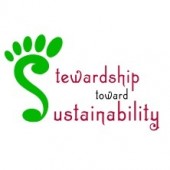
There are unique challenges in sustainability education that many in administrative and decision-making positions may not fully understand. While there is a general movement toward interdisciplinary curriculum design in colleges and universities, what may truly be needed to effectively address sustainability issues is trans-disciplinary curriculum design. Using my experience in creating the Stewardship Toward Sustainability certificate program at Ferrum College as a launch point, I discuss solutions to overcoming conceptual and political barriers in this process.
Continue Reading